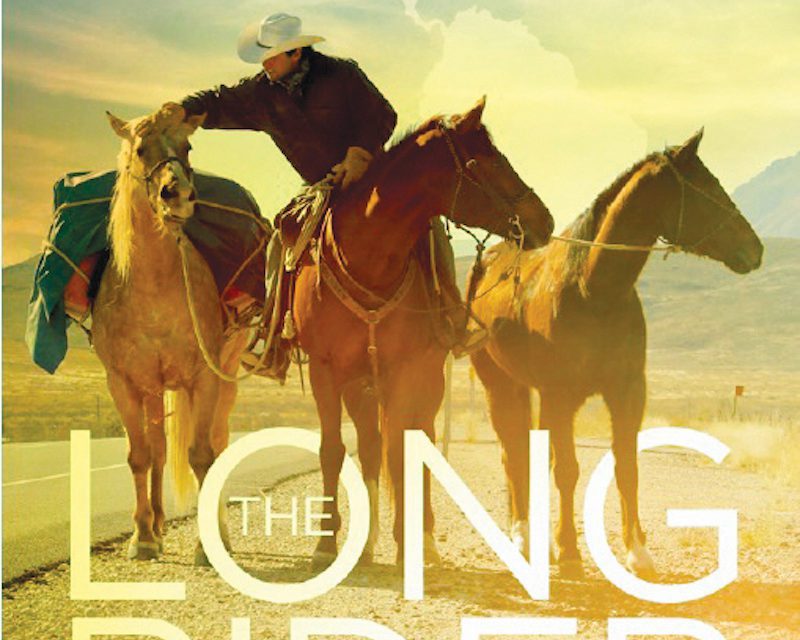The 2022 BIFF Filmmaker Q&A
Lowcountry Weekly’s proudly partnered with the Beaufort International Film Festival for nearly a decade and a half. We’ve watched it grow and evolve from a small but dedicated gathering in a borrowed church to one of the top 100 film festivals on the planet (see the preview). We’ve learned a few things over the years. For instance, people will come here from great distances to spend the better part of a week watching movies and mingling with filmmakers. And we’ve learned to be wary of invitations to go bar hopping after the day’s screenings with certain suspect individuals from L.A. or possibly Atlanta. We’ve also learned that the power of BIFF can get a hit movie made in South Carolina and in so doing go bar hopping with certain suspect individuals from L.A. and possibly Atlanta. Somehow it all works out. Even in a pandemic.
It’s also become a tradition for our annual BIFF issue to toss out a simple (and hopefully revealing) questionnaire to a microcosmic cross section of attending filmmakers. Some of the questions haven’t changed much from year to year, but the answers and explanations are always different. And, yes, revealing.
Welcome the class of 2022.
Lisa Belcher directs and stars in the short film “Guest of Honor” about a couple dealing with a tragedy and an unusual dinner guest on their 21st anniversary. She and co-star Lukas Hassel are nominated for Best Actress & Best Actor.
Husband and wife team, Ann Hamilton & Jeremy Folmer, also pull double duty as producers and stars of the short feature, “Consider the Sparrow,” adapted from Suzanne Bradbeer’s acclaimed play “The God Game.” It’s nominated for Best Ensemble Cast.
Chris Haigh directs the documentary feature “Song for Hope (The Ryan Anthony Story).” Anthony was considered among the greatest trumpet virtuosos ever when he was diagnosed with terminal cancer. The film examines the impact of music in one man’s battle with the disease and inspired a community to action. It’s nominated for Best Documentary Feature, Best Original Score and Best Director.
Director Sean Cisterna brings “The Long Rider” to Beaufort for its World Premiere. The feature documentary chronicles an aspiring young journalist’s eight-year odyssey across 12 international borders from his adopted home in Canada back to his native Brazil… on horseback. Cisterna took home the 2020 Best Feature Film trophy with “From the Vine.”
Mark Albertin’s “Sacred Waters: The Okefenokee in Peril” goes deep into heart of Florida’s treasured National Wildlife Refuge, detailing its incalculable cultural and ecological value and the threat looking large at its edge. The film is also a BIFF World Premiere.
Mark Shaffer: The last couple of years have been challenging, to say the least. How has the pandemic impacted you as a person and a filmmaker?

Lisa Belcher
Lisa Belcher: Initially I welcomed the slower pace of life that came with the pandemic, but then I really missed face-to-face events and seeing other people. As you can imagine it was very difficult to be on a film set and keep everyone safe. My team and I did manage to pull off a small shoot and created a short film during the pandemic. We all appreciated the creative outlet.
Hamilton & Folmer: I’d say it’s made us more appreciative of our work as artists, as well as everyone else’s work. When everything stopped, we all had movies and television. It’s helped to sharpen our intentions for getting work done.
Sean Cisterna: On a personal level, I recall feeling confused and disoriented – it felt as though a disaster film was playing out in real time. But as we all adjusted to the news, and followed health guidelines, we realized we could combat this pandemic. The film community is really resilient and professional, and while other arts communities may have suffered through no fault of their own, filmmakers found innovative ways to continue making movies safely. I used social distancing to my advantage by writing scripts and making movies. I’ve somehow managed to direct 4 feature films since Covid-19 collectively entered our lives.
Mark Albertin: It has impacted me, but not as severely as others. Most of my work is in the documentary format and during 2020 and 2021 I was creating films that allowed me to be outside and away from large groups of people. Traveling was difficult though. But the silver lining to all of this is the fact that I had a great couple of years working on a number of larger projects.
Chris Haigh: I’d imagine all filmmakers will have their own stories. For me, “Song for Hope” 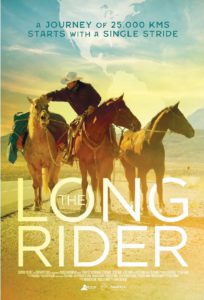 was a real flotation device during the incredibly stormy seas of the pandemic and lockdowns. Being able to immerse myself in the film, watching hours upon hours of footage with the editor and producer of this film was something that kept me sane.
was a real flotation device during the incredibly stormy seas of the pandemic and lockdowns. Being able to immerse myself in the film, watching hours upon hours of footage with the editor and producer of this film was something that kept me sane.
It also allowed me to see just how strong communities can be. For example, “Song for Hope” is a film about a trumpeter with terminal cancer who derives strength and hope in his fight against the disease by playing music for and with people.
During the pandemic, with a non-existent immune system, while undergoing his fifth life-saving stem cell transplant at a hospital in Dallas, and when music ensembles couldn’t congregate due to the pandemic, Ryan wanted to bring together musicians everywhere – virtually – to give hope. In less than a month, 1400 musicians from 39 countries aged 6-93 from all around the world recorded their part to play in the worldwide ensemble for Ryan Anthony.
Shaffer: What was the experience like making a film during this time?
Hamilton & Folmer: There were some additional hoops to jump through, but even with that, it was magical. For us, the elements came together seamlessly, and we were able to shoot in that beautiful window post-vaccines pre-Delta, in a remote West Virginia home. Our cast and crew were a tight-knit bubble through the shoot. It was so gratifying to “get back on the horse” and make a movie again.
Lisa Belcher: “Guest of Honor” was shot before the pandemic. But my experience of being on set during the pandemic was actually pretty good, after we adjusted to all the new rules and protocol.
Sean Cisterna: Usually when we make films, it feels like summer camp. We’re all in one location, having a good time and freely bonding, whereas now, everyone is much more diligent and cautious. We wear masks and sanitize frequently. Only key crew members are allowed on the set, and sometimes only certain departments have access to the location. That summer camp feeling is temporarily gone, but there’s light on the horizon.
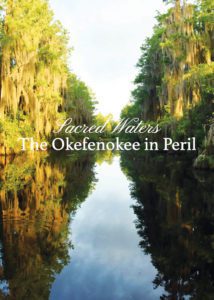 Mark Albertin: It was challenging. Again, thankfully I was outdoors for most all the filming. I had one occasion where I did an interview inside a church just after their Sunday service and I was very uncomfortable. Even though the interviewee and I sat at least 10 feet apart and I wore a mask, I knew that a bunch of people had been in that space just minutes before I arrived.
Mark Albertin: It was challenging. Again, thankfully I was outdoors for most all the filming. I had one occasion where I did an interview inside a church just after their Sunday service and I was very uncomfortable. Even though the interviewee and I sat at least 10 feet apart and I wore a mask, I knew that a bunch of people had been in that space just minutes before I arrived.
Shaffer: The pandemic has altered the filmmaking landscape, possibly forever. What does the future of filmmaking look like to you?
Chris Haigh: As a director, I am incredibly excited about streaming. Every single day, billions of people around the world tune in to a whole smorgasbord of films and TV shows at home. Should “Song for Hope” be distributed on a channel like that, it would bring the attention of a global audience to CancerBlows, Ryan and Niki Anthony’s incredible charity that has so far raised over $2 million for cancer research through music and to Multiple Myeloma, the rare blood cancer that is still incurable and still afflicts people daily. That’s nothing short of immense.
Of course, we want to be able to display our work on “the big screen” in cinemas and have people witness our art projected as large as possible, just like Ryan Anthony wanted to play to capacity crowds at Carnegie Hall every week! But to be able to give access to this film to people who may not be able to go to the cinema, to reach anyone who can see a screen, is everything.
Lisa Belcher: Unfortunately, we all may have to follow some of these protocols forever, but we are all happy to do it as long as we can continue creating films.
Mark Albertin: I feel very optimistic when it comes to creation of films on my end. But I am not sure what the end delivery will be. If we continue to have flare ups and other viruses filtering into our lives, I wonder if theatre-type screenings will be feasible. I hope that won’t be the case because to me the theatre premiere is what makes the end result so engaging. To be able to speak to other filmmakers and meet others in the industry is invaluable.
Hamilton & Folmer: We’ve now made 2 short films, and of course are planning to continue to create work. The one thing the pandemic did for us was make us know that we MUST do that.
Sean Cisterna: The future of filmmaking, I hope, is less reliant on big budget superhero movies to draw audiences into theatres. Much like vinyl has made a comeback in the music world, I hope there’s a large, passionate community of cinephiles who love and support independently produced films that take creative risks. Many in our filmmaking communities found ways to make movies on our home computers with few people and resources to make them come to life – I think we’ll be seeing more films created by those singular voices.
Shaffer: Time to put some butts in seats. Pitch us your film.
Sean Cisterna: My film is called “The Long Rider,” and you absolutely have to see this
documentary because it represents a journey in modern history that will never be repeated. 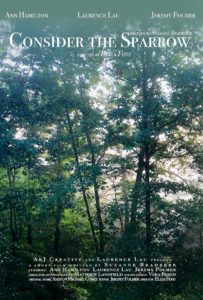 It’s the story of how Filipe Leite, a young immigrant living in Canada, has to get back home to his family in Brazil, and does it in the most unanticipated way – entirely on horseback – paying homage to a book from the 1920’s that his father used to read to him in his youth. Audiences will feel exhilarated because after two long years of not being able to see the world, you’ll get to travel to the 12 different countries. I promise everyone that “The Long Rider” is the most inspirational, emotional, and hope-filled story that you will ever see. And there’s already a narrative feature film version in development, so you’ll be able to see the remarkable true story before the Hollywood-ized version comes out.
It’s the story of how Filipe Leite, a young immigrant living in Canada, has to get back home to his family in Brazil, and does it in the most unanticipated way – entirely on horseback – paying homage to a book from the 1920’s that his father used to read to him in his youth. Audiences will feel exhilarated because after two long years of not being able to see the world, you’ll get to travel to the 12 different countries. I promise everyone that “The Long Rider” is the most inspirational, emotional, and hope-filled story that you will ever see. And there’s already a narrative feature film version in development, so you’ll be able to see the remarkable true story before the Hollywood-ized version comes out.
Hamilton & Folmer: Our film is fantastic! It’s thought provoking, topical, beautifully shot, very well written and well-acted! And it’s our World Premiere. It’s based on a critically acclaimed play by Suzanne Bradbeer, titled “The God Game.” We don’t want to give away the entire plot, but Tom is a Republican Junior Senator from Virginia, he and his wife Lisa have been together for 20 years and are still very much in love. Lisa is a woman of faith. Their best friend Matt works for the Republican nominee for President. He comes to their home with a very enticing proposal, but there’s an issue that may cause some serious problems for them all.
Lisa Belcher: “Guest of Honor” is a heart touching film about a husband and a wife who are dealing with a tragedy. They are celebrating their 21st year anniversary and debate whether to have the party. They go ahead and an unusual guest arrives. This film has had an incredible response so far on the festival circuit. The most common response has been tears along with shock at the unexpected ending.
Mark Albertin: The Okefenokee Swamp is our Grand Canyon, our Sequoia National Park, our Yellowstone on the eastern seaboard. It’s mysterious, it’s wild and it’s beautiful. It is unlike any place I have ever been. I felt as though I was seeing our planet thousands of years ago and there was a purity and spiritual feeling you rarely get elsewhere. To know that this place is at risk of destruction from mining seems insane. How can we risk something so rare, so pure, for minerals that can be found elsewhere. This film tells the story of the swamp and what is at risk. The goal is to inform the public of what we could lose if we don’t take action to stop the mining.
Chris Haigh: Ryan Anthony, renowned principal trumpet of Dallas Symphony Orchestra, when diagnosed with terminal cancer, started a charity called CancerBlows and raised millions for cancer research by putting together big music concerts with some of the greatest trumpet players in the world. During his treatment, he also climbed Mt. Fuji with his oncologist and played his trumpet at the summit. “Song For Hope” is a film about music and how it brings us together, how it drove one man’s battle with a terminal disease and fueled his community to take action. It will be a real pleasure to deliver its world premiere to all of you on Saturday, February 26th at 7:30pm.
Shaffer: It’s Chris’ first BIFF. How did you find out about BIFF and why attend our intimate little soiree?

Chris Haigh
Chris Haigh: Beaufort is not only one of the best regarded festivals in the country but is impeccably well-organized by Ron and Rebecca Tucker and has a pedigree of being well-attended by passionate, cultured, film-loving audiences.
With this being my directorial debut, it’s not only an immense privilege to be selected at BIFF 2022. It’s also a huge honor to be nominated alongside such a fantastic field of films.
Shaffer: For you BIFF veterans, what keeps calling you back?
Lisa Belcher: The high quality of the screenings and the parties. And the amazing people I met.
Mark Albertin: The quality of the festival. Ron Tucker and his staff make sure that everything is running at a perfect pace. The festival brings in famous talent from around the country, too! I have been to many film festivals over the years. But, BIFF has never disappointed. The venues and proximity to downtown with the historic district gives filmmakers a wonderful atmosphere to explore between screenings. I feel like every time I come, it doesn’t matter if I come away with a prize…just being able to say I have been a finalist at this festival is reward enough.
Ann Hamilton: Going to BIFF last year for the first in-person film festival in a year was so 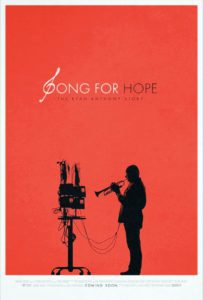 inspiring and invigorating. The films were top-notch. Ron and Rebecca went above and beyond to make me feel welcome and appreciated. Debbi Covington’s food was fantastic. When I returned home, I told Jeremy we HAD to make Consider the Sparrow, and get it done so that we could return. I’m so thrilled to be sharing BIFF with my husband Jeremy this year, as well as our co-producer and our director (yes, we’re all coming)! And I’m looking forward to seeing the films in the real theatre this year.
inspiring and invigorating. The films were top-notch. Ron and Rebecca went above and beyond to make me feel welcome and appreciated. Debbi Covington’s food was fantastic. When I returned home, I told Jeremy we HAD to make Consider the Sparrow, and get it done so that we could return. I’m so thrilled to be sharing BIFF with my husband Jeremy this year, as well as our co-producer and our director (yes, we’re all coming)! And I’m looking forward to seeing the films in the real theatre this year.
Sean Cisterna: Beaufort is honestly a filmmaker’s paradise. The audiences here are engaged, warm and passionate, the entire Beaufort International Film Festival team goes out of their way to make visiting filmmakers feel special, the networking opportunities are plentiful, and the gorgeous city offers plenty to experience while not enjoying films in the cinema. I love BIFF.
Go online for tickets & information at www.beaufortfilmfestival.com

